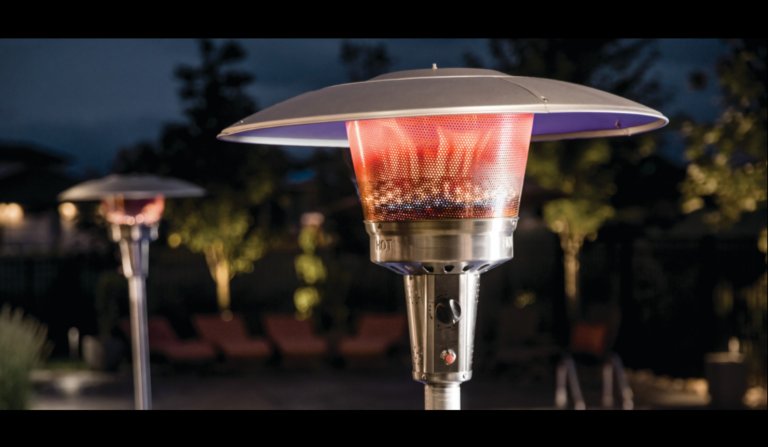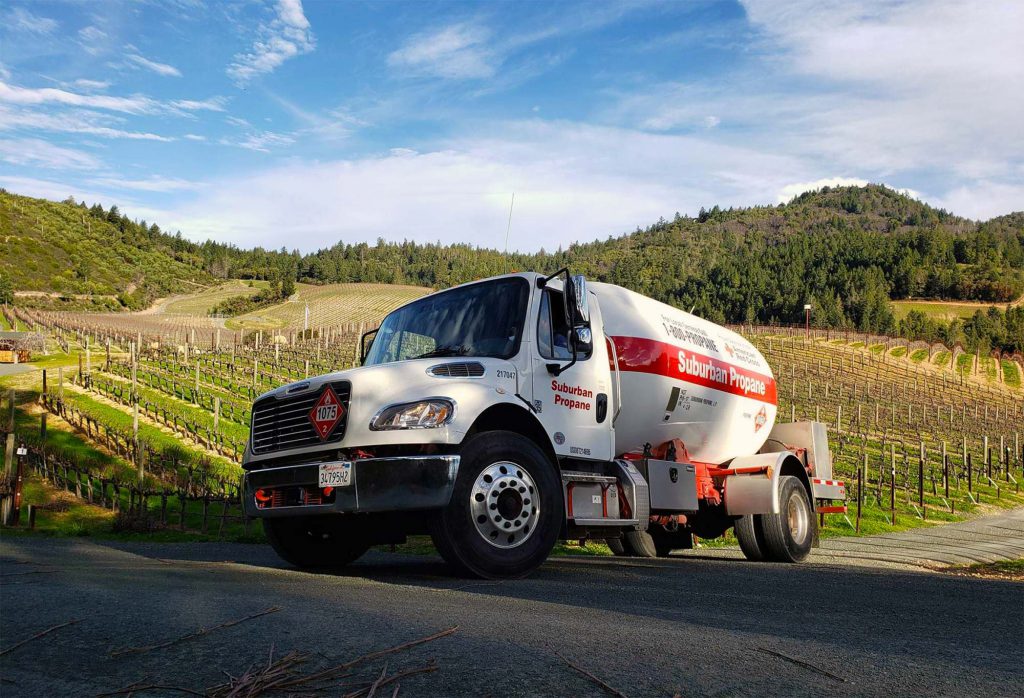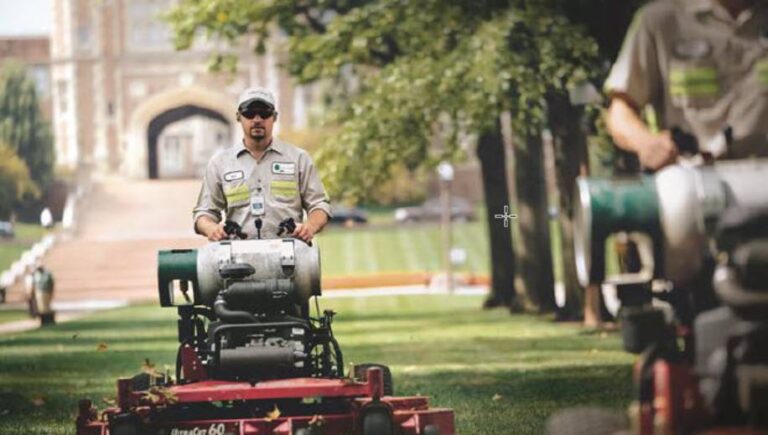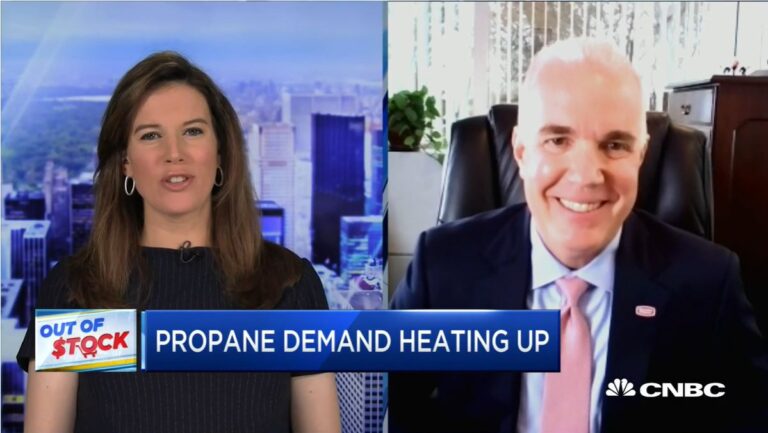Stay Outside Longer & Safer with Portable Outdoor Propane Heaters

For a comfortable and energy-conscious solution when the weather turns chilly, warm up to propane patio heaters.
Portable propane patio heaters and outdoor heaters are becoming increasingly popular at restaurants and on backyard patios. Outdoor propane heaters work by different methods and emit heat by convection, forced air, or through infrared heating. They also vary in capacity, output adjustability, size, and capability to heat areas of differing square footage. No matter which model you use, follow these tips for portable outdoor propane heater safety. Always refer to your owner’s manual for information specific to your model.
Do not operate or light the heater if you smell gas.
Propane has a distinct odor that everyone should be familiar with, and care should be taken when changing propane cylinders and lighting the heater. Heater manufacturers have specific instructions for changing propane tanks and lighting the heater that should always be followed.
These heaters are for outdoor use only, never for temporary indoor use.
Outdoor heaters may seem like a suitable replacement indoor heat source, but they should never be used in enclosed areas.
Outdoor propane heaters should be turned off and disconnected prior to relocation.
Outdoor propane heaters offer the convenience of portability and mobility. Though moving them is a simple task, doing so while a propane outdoor heater is in use could create a potentially unsafe situation.
Keep outdoor heaters away from exits.
Regulations require that portable outdoor propane heaters “shall not be located within five feet of exits from an assembly occupancy”. This is to prevent heaters from being bumped or knocked over by people entering or exiting the building.
Only use outdoor patio heaters on flat, stable surfaces, away from foot traffic.
Do not place heaters anywhere unstable, in high-traffic areas, or in the path to primary exits.
Keep heaters away from flammables.
Each manufacturer has specific requirements for how close heaters can be to combustible materials like paper, and items that might melt, like tents or plastics. Make sure that you are familiar with the manufacturer’s recommendations on distance requirements.
Courtesy of Propane Education & Research Council
Share this story, choose your platform:
Related Posts
Peace of mind
with dependable
fuel supply, when
you need it

COMMUNITY
700+
Locations providing exceptional service to local communities across 42 states
EXPERIENCE
95+
Years serving our customers and their communities. Customer satisfaction since 1928
CUSTOMER SERVICE
3,300+
Dedicated employees ready to assist you with quality service for all your fuel needs
RELIABILITY
24/7/365
We are here for you with customer service representatives standing by to take your call
Please call us 24/7/365 at 1-800-PROPANE



